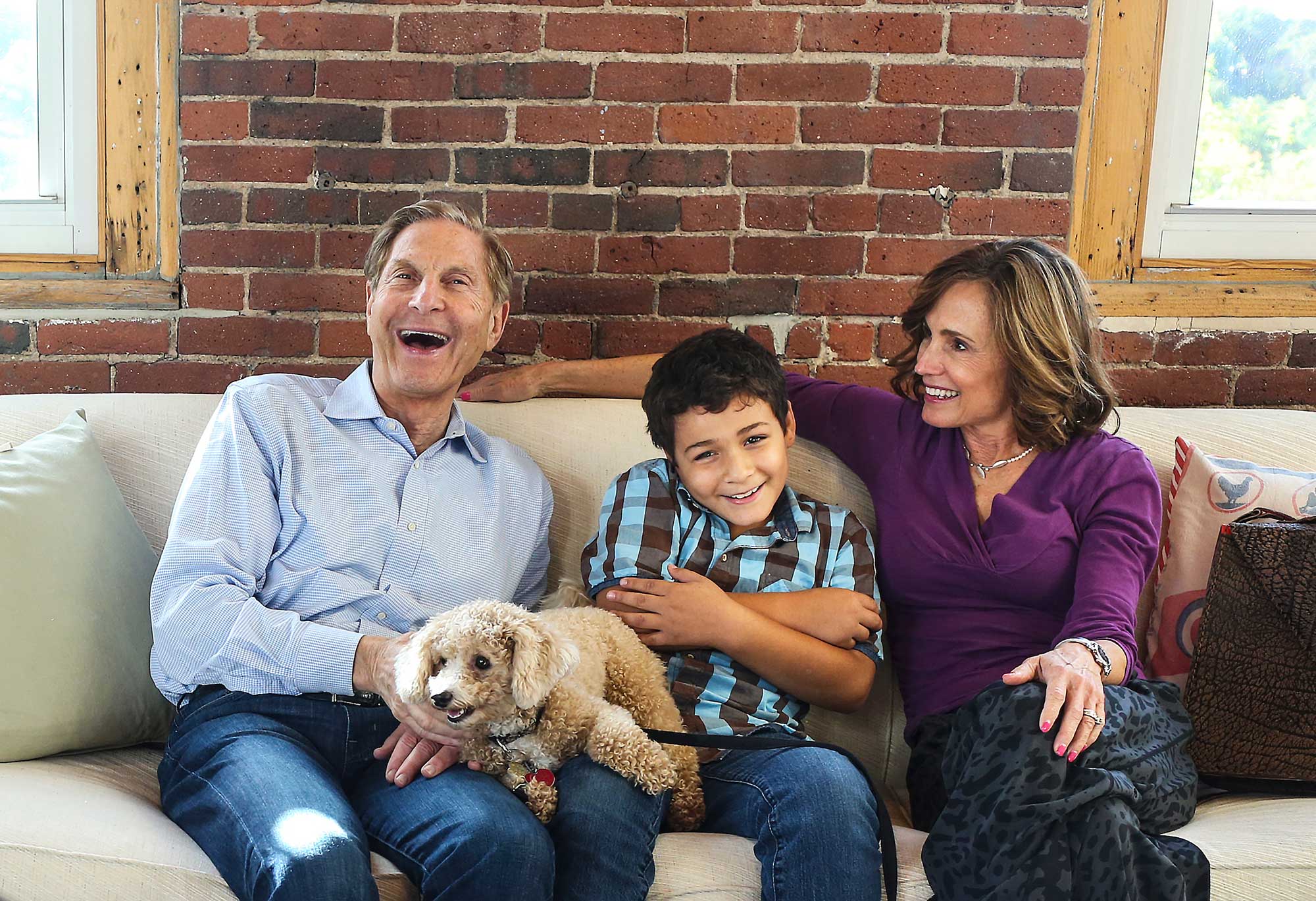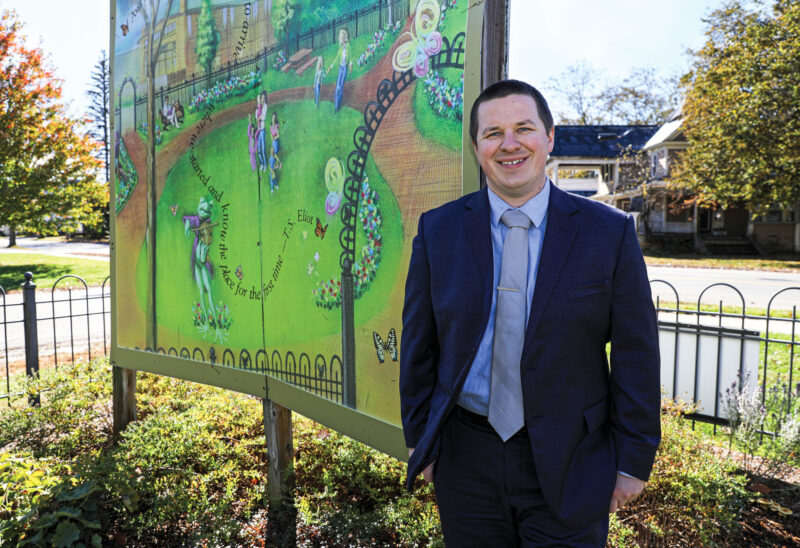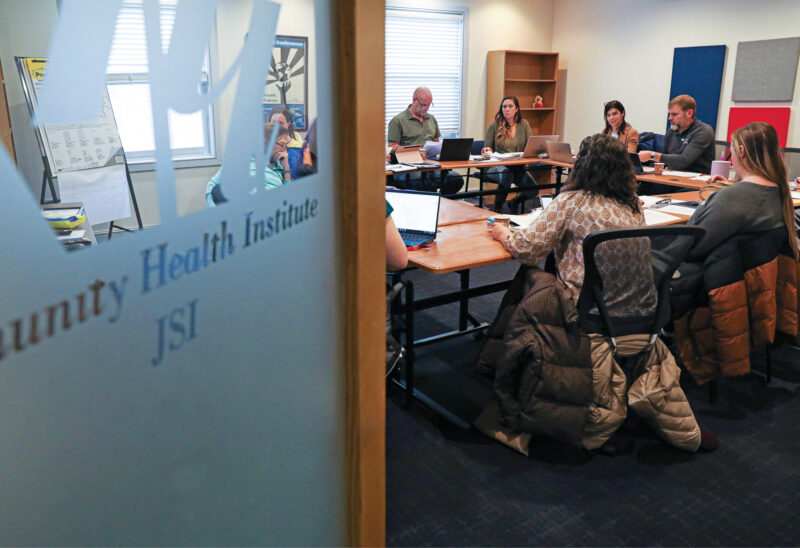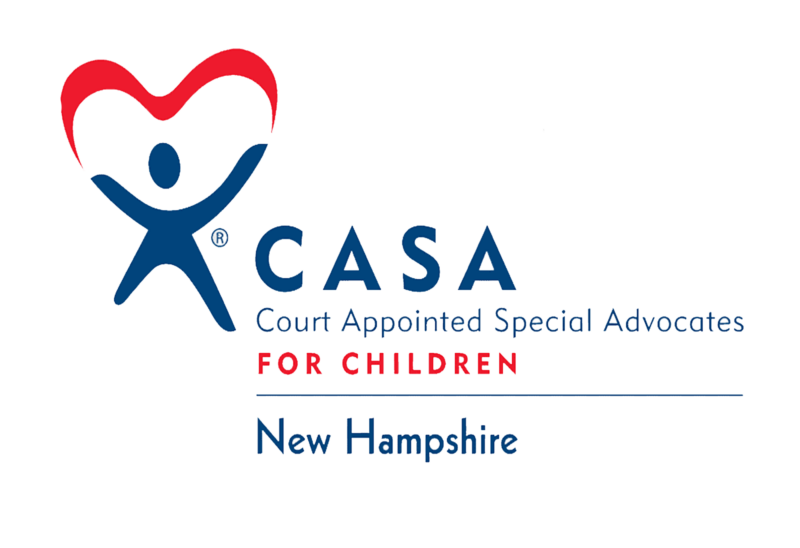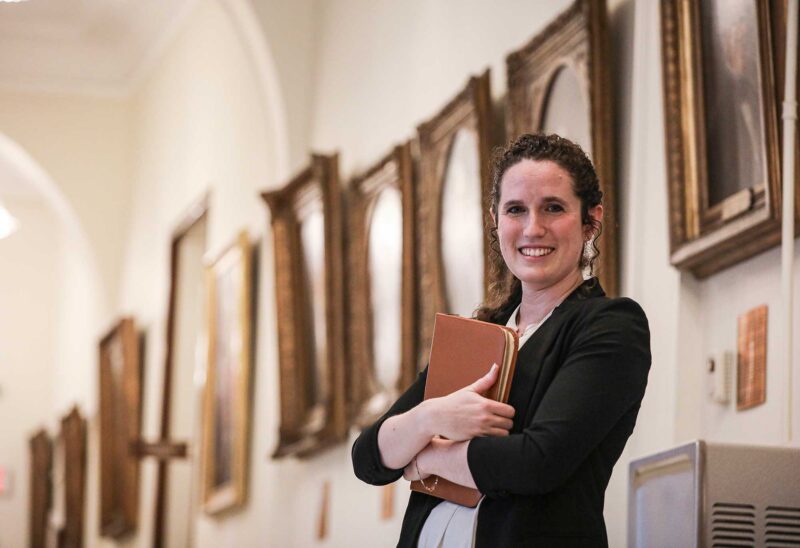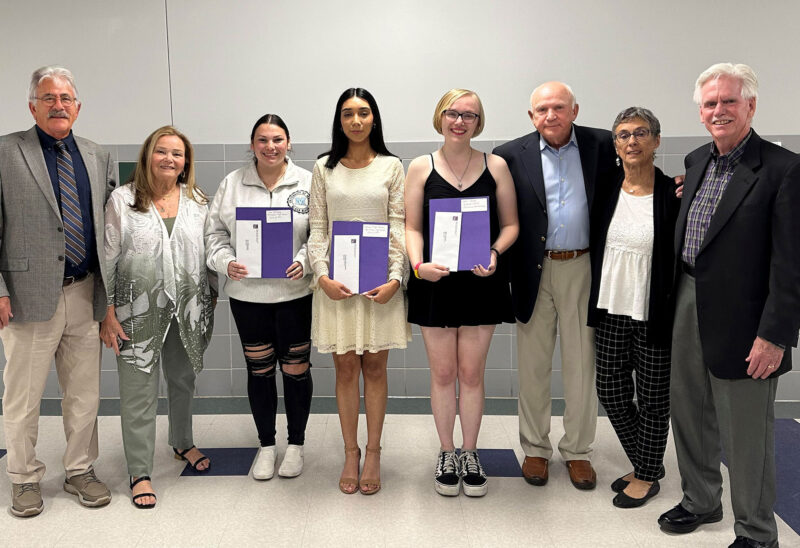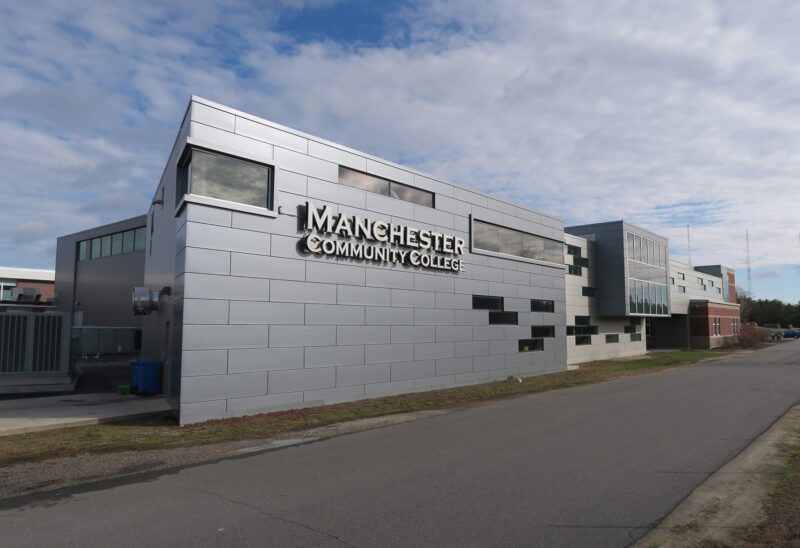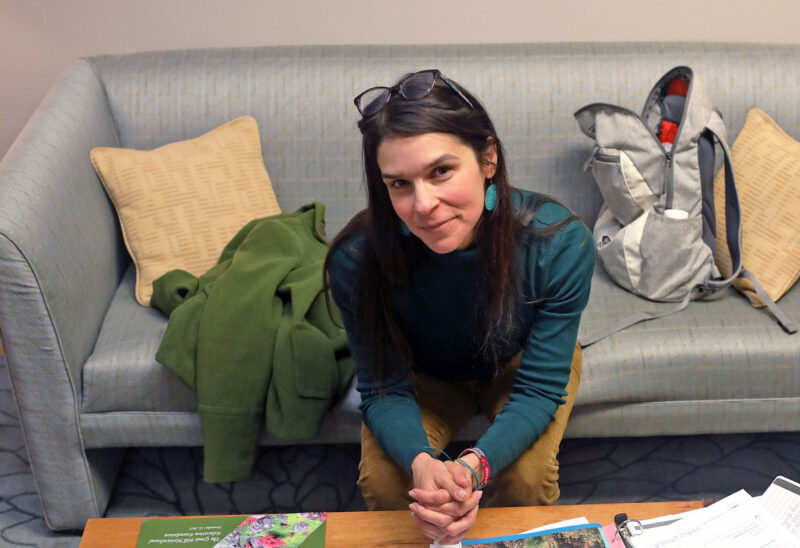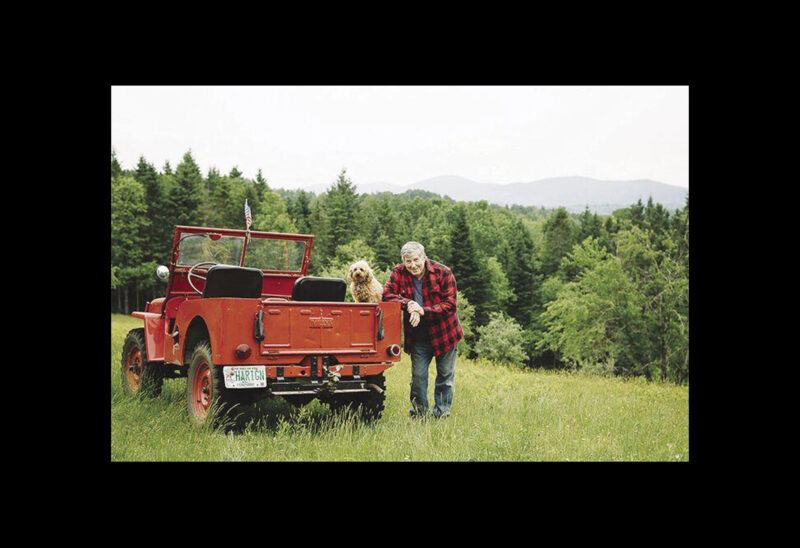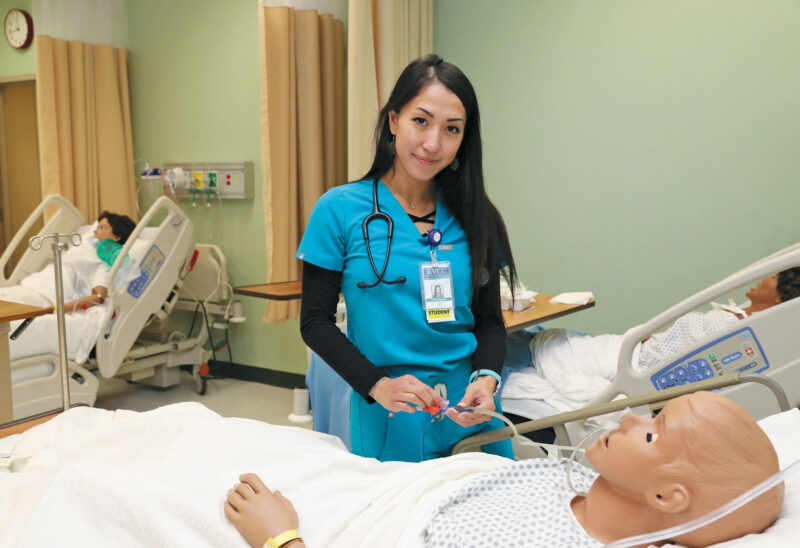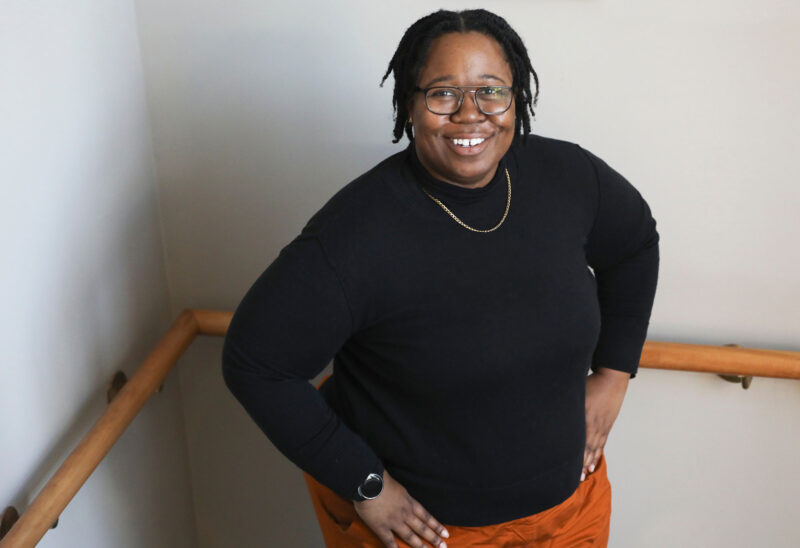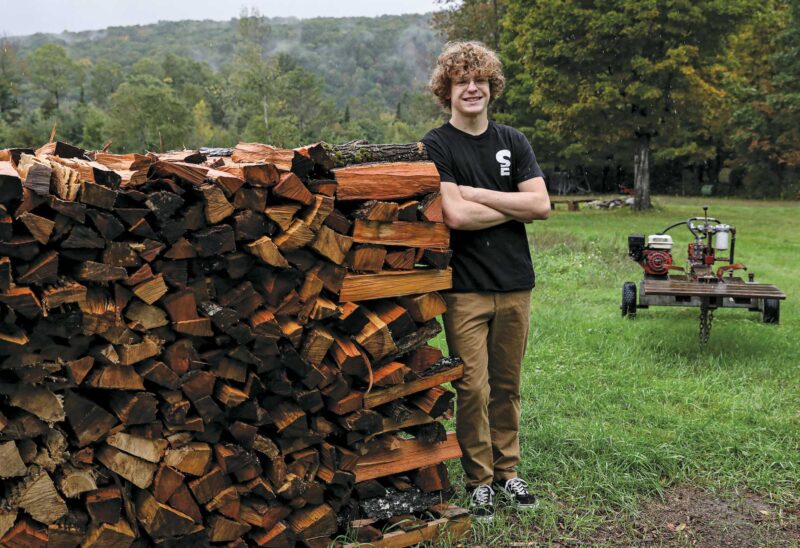At 3:10 on a Monday afternoon, a shiny bus with a uniformed chauffeur pulls up to CCA Global Partners in Manchester’s Millyard. A small crowd has assembled in anticipation, and necks are craned to get the first glimpse of the VIPs coming off the bus.
These VIPs are all about 10 years old.
They are the “little” sisters and brothers of the CCA Global employees — CEO Howard Brodsky among them — coming to spend the afternoon, on company time, with their “big” brothers and sisters.
They spill down the steps in a riot of brightly-colored backpacks, jackets and homework papers trailing, and are enveloped in a chorus of greetings and hugs.
This scene plays out every other Monday afternoon. CCA Global Partners gives its employees time, during the work day, to mentor kids. It is one of the many ways this company gives to its community.
“Kids need somebody in their corner, somebody they can trust,” said Brodsky. “This, sometimes, is their one consistent relationship.”
The CCA halls, quiet until now, ring with kid-sound. If there had been an afternoon lull going on, it’s over.
Most of these Littles go to the Henry Wilson School, where almost 90 percent of students qualify for free and reduced-price lunch. The first thing they do when they arrive at CCA Global is tuck into a buffet of sandwich wraps (ham and turkey), fresh carrots and cucumbers and chips, with fresh fruit salad with whipped cream for dessert. (Joan Brodsky, who serves as vice-president of the BBBS board, was the driving force behind the addition of a nutritious after-school meal for the kids.) Littles sit with their Bigs, catching up on what’s new. Many children leave with extra food to take home.
At a table in the corner, Lyndsay Wornham, a millennial business consultant, is sitting with 11-year-old Autumn, going over the day. Later, they’ll work on Autumn’s homework, and talk.
“This is a great opportunity to be an empowering force in her life,” Wornham says. “That is another one of the very cool perks of an innovative and cool company.”
Geoffrey Eichhorn, CCA Global director of training and development, was “Big Brother of the Year” last year. His Little brother is Michael, a bespectacled 12-year-old who lives with his grandparents. Michael sits opposite Geoffrey at his desk, diligently working out percentage and decimal problems and then getting started on a science paper. His grades have improved with Geoffrey’s mentorship.
Joan Brodsky points out the statistics: children with Big brothers and sisters do better in school and are far less likely to drop out, they are far less likely to use drugs and alcohol, and they have more successful relationships.
CCA’s program helps its employees try out mentoring for the first time — without putting demands on their already-busy after-work hours. Many go on to become “community” mentors, meaning they also spend time with their Littles outside work. Each match is carefully paired and overseen by BBBS.
Brodsky and his wife Joan co-mentor Luis now, a bright-eyed 11-year-old who does well in school, loves mac and cheese and is looking forward to baseball season. Luis is Howard’s second Little brother. (His first, Joshua, who was eight when Howard met him, is now married with his own family and still in touch with the Brodskys.) Luis makes himself right at home behind Howard’s desk (and calls Eichhorn’s extension and announces, impishly, that he has been promoted).
Gregg Burdett, CEO of Big Brothers Big Sisters, says programs like CCA’s “provide at-risk youth with an amazing opportunity,” to experience life in the workplace. Kids learn, first-hand, about the value of education and the possibilities in the world of work.
BBBS has a similar program with Comcast, and is launching another this fall with Northeast Delta Dental.
The program, Brodsky says, sends a clear message.
“This builds a culture where everyone knows that we care about people in our community, and that people come first. It says that this is a company with high values, and that we live those values,” he says. “It’s capitalism with a conscience.”
When people ask about whether productivity is affected by allowing employees to mentor during work time, Brodsky says it’s a non-issue.
“People are very committed to getting the work done,” he says. “They always do.”
CCA has folded other businesses into the partnership. The bus comes courtesy of Grace Limousine, which said a fast “yes” when CCA called to ask for transportation for the Littles. At Thanksgiving, Market Basket helped to supply and deliver holiday meals to all the Littles’ families.
Brodsky encourages other businesses to think about creative partnerships with nonprofits. The non-profit sector contributes to New Hampshire’s quality of life in countless ways — from mentoring kids to supporting the arts and caring for elders and protecting natural resources — thus directly supporting companies’ ability to recruit and retain great talent.
Brodsky encourages business leaders to pick something they are passionate about, find a non-profit working on it, and find out how to become intimately involved — in addition to offering financial support.
At the end of the day, the bus pulls back to the door. There are more hugs, and high fives, and reminders to study hard.
“I want our people to be empowered that they are making a big difference,” Brodsky says.
The Bigs are still waving and smiling and calling “see you soon!” as their Littles climb back on board.
This article originally appeared in the March 1, 2018 issue of New Hampshire Business Review as part of the “Greater Giving” series, a partnership between NHBR and the Charitable Foundation that promotes a culture of giving in New Hampshire’s business community.
For more information on how the Foundation works with businesses on charitable giving, contact Richard Peck at 1-800-464-6641 ext. 265 or Evpuneq.Crpx@aups.bet.

